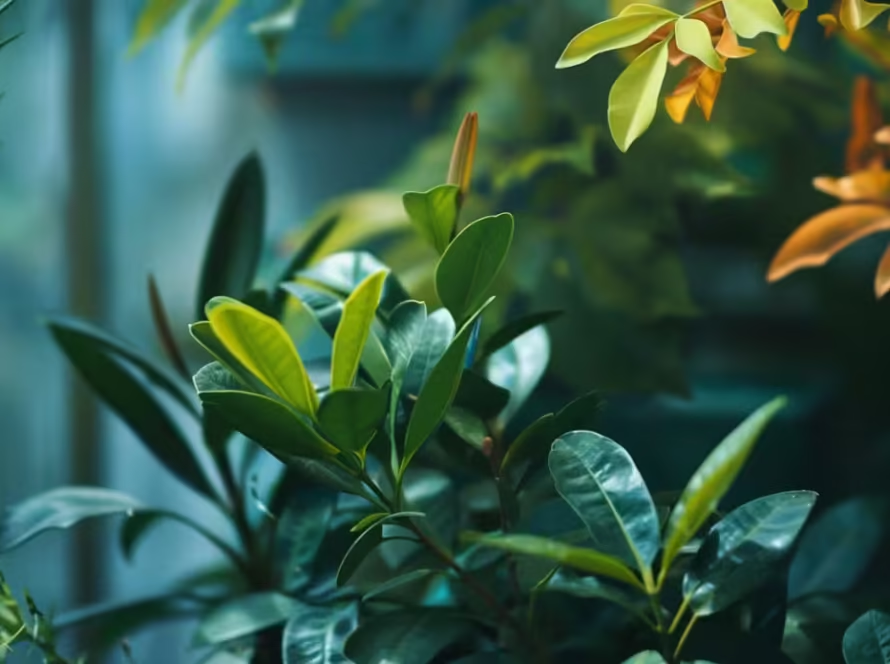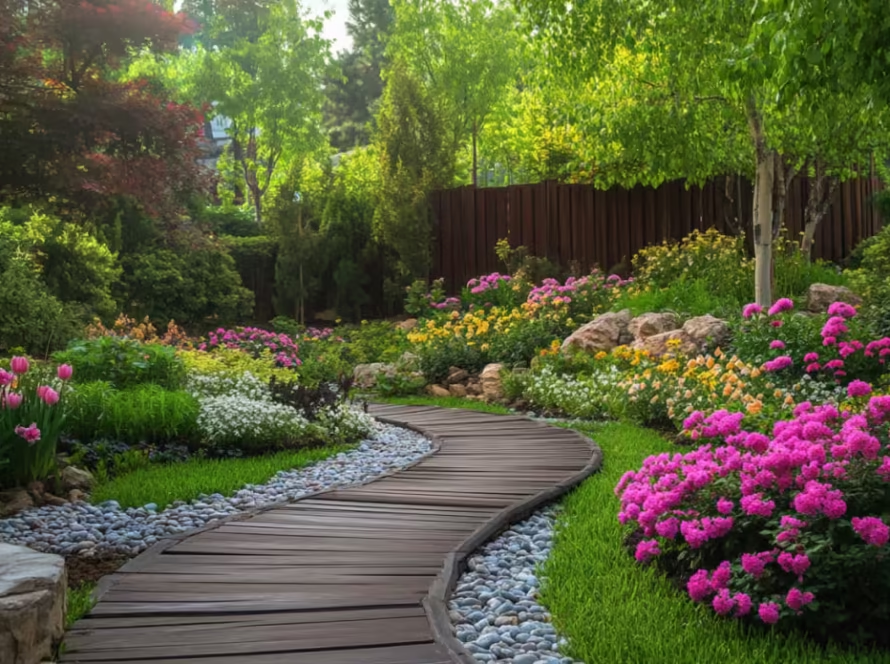Everyone dreams of a garden filled with healthy and blooming plants, but with the extreme weather conditions in the UAE, it may be challenging, as the survival needs of different plants vary. Summer has kicked in Dubai, listing below some heat-resistant plants that need to be added to your garden this summer.
Bougainvillea is a paper-like flower that grows in different shades and grows very well in warm climates. It’s commonly used on climbers, fences, and walls. Even though the flower is very delicate, it is a hardy plant and prefers a hot climate, well-drained soil and very minimal watering.
Pros:
- Bougainvillea tolerates the heat and drought. It requires very minimal watering after full growth.
- They come in different colors like magenta, orange, and white, adding charm to other elements like pergolas, walls, gazebos, and fences.
- Minimal pruning and occasional watering are sufficient to keep it blooming all year round.
Cons:
- While bougainvillea looks vibrant and attractive, it drops petals very frequently, making the area untidy.
- It has sharp thorns, as a result, bougainvillea is not suitable for installation on walkways as it will cause injury.
- Even though it is perfect for Dubai’s heat, it’s not very suitable during Dubai winters. They cannot stay in the winter season unless they are properly taken care of.

Desert rose is known for its trumpet-shaped flowers with shades of pink, red and white. Its unique shape makes it a great choice for gardeners. This plant grows very well in the hot regions and requires very little maintenance.
Pros:
- The Desert Rose has very thick water-storing stems that make it drought-resistant.
- The beautiful structure of the plant makes it a perfect choice for a showpiece.
- Desert roses are required to be kept on well-drained soil, and overwatering should be avoided.
Cons:
- Compared to other plants, the desert rose grows slowly.
- Its branches are fragile and can break easily when moved or during high winds.
- During the winter, desert plants lose their petals, making them look unattractive.

Plumeria is known for its beautiful fragrance, its star shape and lush green leaves. Originating from Central America, Mexico and Caribbean, it blooms well in warm climates. Plumeria grows well in minimal watering, well-drained soil and excess sunlight.
Pros:
- Plumeria is known for its fragrance and tropical look.
- It can withstand the UAE heat and grow well in sandy soil
- Plumeria requires very little maintenance.
Cons:
- They need to be protected from extreme winds.
- They can be very slow to grow; gardeners cannot expect immediate results from this plant
- The branches of plumeria are very brittle and can break off very easily.

Originated from India, Neem is well known for its medicinal, agricultural and environmental benefits. This plant can grow up to 15-20 meters and can stay upto 200 years.
Pros:
- Neem tolerates poor soils, saline water, and extreme heat.
- It naturally removes pests and improves the air quality, making it eco-friendly and easy to maintain.
- Apart from other trees, the neem tree does not demand constant trimming or shaping.
Cons:
- People can get skin irritations or allergies when in touch with neem leaves, oil, or bark.
- Neem trees grow very well in the summer; they cannot grow well in the winters.
- Neem tree produces a strong, unpleasant smell that not everyone will like.

Succulents (Aloe Vera, Agave, Echeveria) store water in their thick and fleshy leaves or stems, which is why they can survive in the hot, dry climates, and they do not require much water. These plants are not just designed for the outdoors; it is a perfect option for indoors as well. Its water-storing nature makes it ideal to be kept in homes, offices, and apartments.
Pros:
- Succulents are good at adapting to the UAE climate.
- They store the available water on their leaves and grow very well in dry and sunny conditions.
- People can choose from various options because succulents come in different shapes, sizes, textures, and colors.
Cons:
- Succulents must be planted only in well-draining soil
- Overwatering should be avoided
- Even though they need sunlight, extreme heat can destroy their leaves.

A date palm tree is mostly found in warm countries like the Middle East, Asia, and America. They provide resources like dates, materials for construction, palm oil etc. Their ability to stay long and the unique beauty they carry makes them popular in landscaping.
Pros:
- Date palms require very little maintenance once fully grown.
- It grows well in hot climates and requires less water once fully grown.
- A healthy date palm can live and produce dates up to 100 years.
Cons:
- It’s costly to buy and transplant mature date palms, as they have different sizes and care requirements.
- Date palms are not suitable for small gardens as its very tall and wide.
- For high fruit production, date palms should be properly pruned, trimmed, and well-maintained until they mature.

FAQ’s
- What is the cost of installing a plant?
Installation cost varies for every plant. It depends upon the size, quantity and type of plant you are looking for.
- Which plant will add more colour to my garden?
Plants like Bougainvillea and Plumeria will give a vibrant and colorful look to your garden.
- Are these plants safe for children and pests?
Some plants like Bougainvillea have thorns on its stems, and trees like neem can cause allergy issues. It is important to discuss plant safety with the landscape team before installation.
- How can I protect these plants from strong winds or sandstorms?
Desert plants like Plumeria and desert rose have brittle branches; installing them in a sheltered area or providing support to the branches, like adding a stake, can help them withstand the winds. Regular pruning can also help reduce wind damage.
- Which soil type is the best for these plants?
All the plants mentioned above require well-draining soil. Sandy soil mixed with compost or organic matter is most advisable for the UAE conditions.



